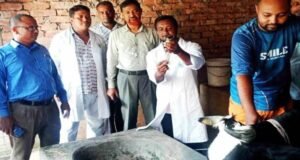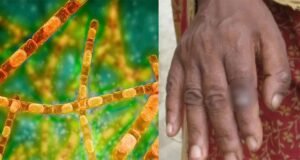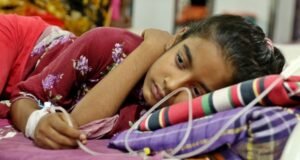 A new therapy containing broccoli sprout extract has been found to protect not only mice against oral cancer but also tolerable in a small group of healthy human volunteers, says a new study.
A new therapy containing broccoli sprout extract has been found to protect not only mice against oral cancer but also tolerable in a small group of healthy human volunteers, says a new study.
“People who are cured of head and neck cancer are still at very high risk for a second cancer in their mouth or throat, and, unfortunately, these second cancers are commonly fatal,” explained lead author Julie Bauman from University of Pittsburgh Cancer Institute in the US.
“So we are developing a safe, natural molecule found in cruciferous vegetables to protect the oral lining, where these cancers form,” Bauman noted.
Previous studies have shown that cruciferous vegetables such as broccoli, cabbage and garden cress — which have a high concentration of sulforaphane — help mitigate the effects of environmental carcinogens.
For the new study, mice predisposed to oral cancer were given sulforaphane for several months and the team found that it significantly reduced the incidence and number of tumours.
The researchers then treated 10 healthy human volunteers with fruit juice mixed with sulforaphane-rich broccoli sprout extract.
The volunteers had no ill-effects from the extract and protective changes were detectable in the lining of their mouths, meaning it was absorbed and directed to at-risk tissue.
The researchers now plan to conduct a clinical trial that will recruit 40 volunteers, who have been curatively treated for head and neck cancer.
The participants will regularly take capsules containing broccoli seed powder to determine if they can tolerate the regimen and whether it has enough of an impact on their oral lining to prevent cancer. From there, larger clinical trials could be warranted, the researchers noted.
“We call this ‘green chemoprevention,’ where simple seed preparations or plant extracts are used to prevent disease,” Bauman noted.
“Green chemoprevention requires less money and fewer resources than a traditional pharmaceutical study and could be more easily disseminated in developing countries where head and neck cancer is a significant problem,” Bauman said.
The findings were presented at the American Association for Cancer Research (AACR) annual meeting in Philadelphia, Pennsylvania.
 Weekly Bangla Mirror | Bangla Mirror, Bangladeshi news in UK, bangla mirror news
Weekly Bangla Mirror | Bangla Mirror, Bangladeshi news in UK, bangla mirror news







